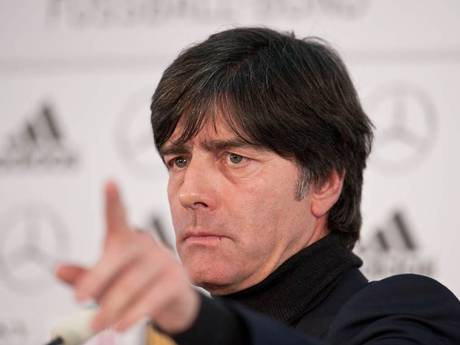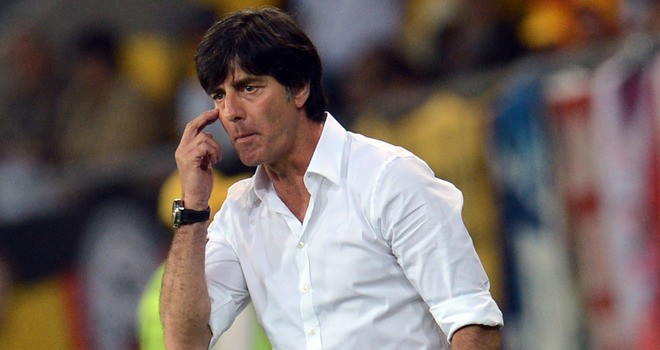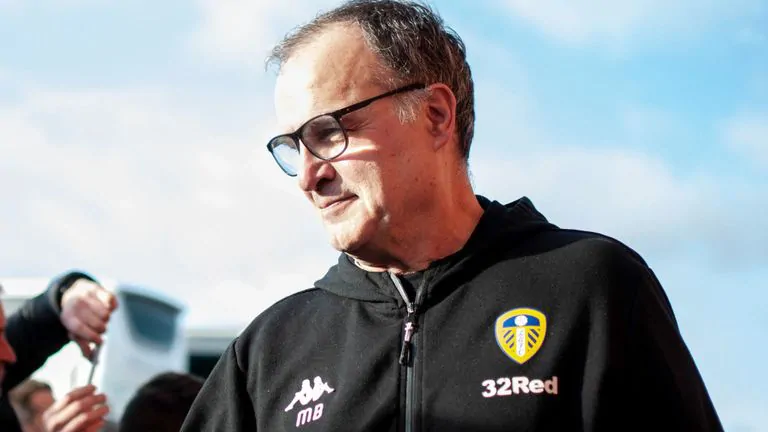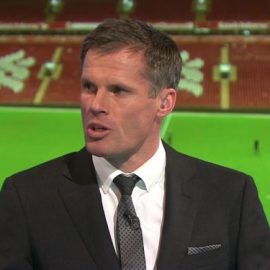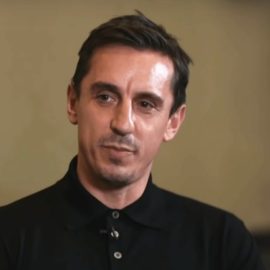Today’s announcement that Joachim Low has signed a two-year contract extension to remain Germany manager through until Euro 2016 means he could become the country’s longest-serving coach since the fall of the Berlin Wall.
Low will overtake Berti Vogts, who had eight years in charge between 1990 and 1998, next August if he keeps his job through the World Cup.
We look at the five men who have managed Germany since its reunification:
Berti Vogts
Serving as Franz Beckenbauer’s assistant in the 1980s, Vogts succeeded him when the Kaiser stepped down after winning Italia ‘90. He took reunified Germany to four major tournaments in the decade always reaching the quarter-finals or better.
Vogts saw his side lose the Euro 1992 final to surprise winners Denmark and suffered a shock defeat to Bulgaria in the last eight at the World Cup two years later.
These disappointments were put behind him, however, as Germany won Euro ’96 on English soil, beating the hosts in a now infamous penalty shootout in the semis.
Eastern European opposition would again be Vogt’s undoing, however, as Croatia comprehensively beat his team at the 1998 World Cup.
Vogts went on to coach Scotland unsuccessfully and is currently in charge of Azerbaijan.
Erich Ribbeck
Beware the fury of the patient man. Ribbeck waited 20 years to coach his country. Assistant to Beckenbauer’s predecessor Jupp Derwall (a headline writer’s dream), his chance finally came when Vogts stepped down in the autumn of 1998.
Ribbeck got Germany to Euro 2000, but it was a tournament too many for veteran squad members Thomas Hassler, Ulf Kirsten and Lothar Matthaus.
They finished bottom in their group below England as Portugal and an equally ageing Romania advanced. Ribbeck was swiftly sacked.
Despite this ignominious end to a career, which included spells as coach at Borussia Dortmund, Bayer Leverkusen and Bayern Munich, Germany have lots to thank Ribbeck for.
Their failures are European Championships in 2000 and 2004 forced this proud football nation to shift their emphasis to youth. We can see now how the rewards have been reaped.
Rudi Voller
Grey-haired Voller quickly got fans onside by giving Germany the immortal tag of winners of the last match at the old Wembley.
That cost Kevin Keegan his job, but England avenged that loss by coming from behind in Munich’s Olympic Stadium to trounce their hosts 5-1:
Defeat outlined above followed by a draw with Finland in Gelsenkirchen consigned Germany to the World Cup playoffs.
Voller not only took Germany through two legs with Ukraine, but steered them to the final in Japan and South Korea. Brazil got the better of them though thanks to a Ronaldo brace.
Passage to Euro 2004 was smoother, but Germany never turned up at the tournament and Voller got his cards when they fail to make it out of the group. Had Bayern Munich been able to keep star player Sebastian Deisler fit things may have been different.
At club level Voller has always preferred the boardroom role of sporting director to coaching. A short spell in dugout at old side Roma was a disaster, but he has been a loyal servant in the Leverkusen hierarchy.
Jurgen Klinsmann
Popular striker Klinsmann, who had two spells at Tottenham Hotspur, took over from his old partner Voller and continued to implement the changes mentioned above regarding youth.
As hosts of the 2006 World Cup there were a series of prestige friendlies instead of qualification. The Confederations Cup, held a year before, served as a fine dress rehearsal for Germany as the young team was narrowly beaten by Brazil in the semis.
Klinsmann gave today’s established stars like Bastian Schweinsteiger, Philipp Lahm and Lukas Podolski regular international football.
Germany got their own World Cup off to a flier with a memorable 4-2 win over Costa Rica:
It seemed the new approach would pay off. Just as they did at the Confederations Cup, however, Germany lost in the semis. Extra time goals from Fabio Grosso and Alessandro Del Piero sent Italy through to the final where they won their fourth crown.
Klinsmann chose to walk away despite claiming third place. His assistant got promoted. Now he manages the United States national team and has guided them to the World Cup in Brazil. Between these national job he had an ill=fated spell at Bayern Munich.
Joachim Low
Low’s seven years in charge of Germany so far have been a story of so nearly. Talented young players aplenty were brought through, but top dogs Spain put them to the sword in the Euro 2008 final and 2010 World Cup semis.
There was irony about a mercurial youngster in opposition ranks being Low’s undoing at Euro 2012. Mario Balotelli’s first half brace took Italy past Germany in the final four only for them to be comprehensively beaten by Spain as well.
As the Iberian dynasty shows signs of decline, a crushing defeat in Brazil by the hosts at this summer’s Confederations Cup chief among them, Low knows his lads are among the favourites to win the World Cup.
Add Sportslens to your Google News Feed!
